Choosing between a custom ERP (Enterprise Resource Planning) system and an off-the-shelf solution is a critical decision that can significantly impact your business operations, efficiency, and growth. Both options have their own advantages and limitations, and the best choice depends on your specific business needs, budget, and long-term goals. This blog will explore the key differences between custom ERP and off-the-shelf solutions, helping you determine which is the right fit for your organization.
1. Understanding Custom ERP Systems
A custom ERP system is a tailored solution designed specifically for the unique requirements of a business. It is developed from scratch or heavily modified to meet the precise needs of an organization, considering its processes, industry-specific requirements, and operational nuances.
Advantages of Custom ERP Systems:
a. Tailored to Your Needs
- Flexibility: Custom ERP solutions are designed to fit your exact business processes, workflows, and requirements. This ensures that the system aligns perfectly with how your organization operates.
- Unique Features: You can include specialized features and functionalities that may not be available in off-the-shelf systems. This is particularly beneficial for businesses with unique operational needs or complex processes.
b. Scalability and Integration
- Adaptability: Custom ERP systems can be scaled and adapted as your business grows or changes. You can add new modules, adjust functionalities, and integrate with other systems based on evolving requirements.
- Seamless Integration: Custom solutions can be integrated with existing software and tools within your organization, ensuring a cohesive and streamlined IT environment.
c. Competitive Advantage
- Differentiation: By having a unique ERP system, you can develop processes and capabilities that set your business apart from competitors who may be using standard off-the-shelf solutions.
Disadvantages of Custom ERP Systems:
a. Higher Cost
- Development and Implementation: Custom ERP systems typically involve higher upfront costs due to development, customization, and implementation. This can be a significant investment for many businesses.
- Ongoing Maintenance: Maintenance and support for a custom ERP solution can be more expensive and complex, requiring specialized expertise.
b. Longer Implementation Time
- Development Time: Building and customizing a system from scratch can take considerable time, potentially delaying the benefits of ERP implementation.
c. Resource Intensive
- Management and Oversight: Managing a custom ERP project requires dedicated resources and project management skills to ensure successful development, deployment, and ongoing maintenance.
2. Understanding Off-the-Shelf ERP Systems
An off-the-shelf ERP system is a pre-built, commercially available software solution designed to serve a wide range of industries and businesses. These systems come with standardized features and functionalities that can be configured to meet general business needs.
Advantages of Off-the-Shelf ERP Systems:
a. Lower Cost
- Initial Investment: Off-the-shelf ERP solutions are generally more cost-effective compared to custom systems. The lower initial investment is due to economies of scale, as the software is developed for a broad market.
- Predictable Costs: Licensing fees are usually predictable and include ongoing updates and support.
b. Faster Implementation
- Quick Deployment: Since the software is already developed, off-the-shelf ERP systems can be implemented more quickly than custom solutions. This allows businesses to realize the benefits of ERP sooner.
c. Proven Reliability
- Tested Solution: Off-the-shelf ERP systems have been tested and used by many organizations, providing a proven track record of reliability and performance. They often come with extensive documentation and user support.
d. Regular Updates and Support
- Continuous Improvement: Vendors regularly release updates and new features, ensuring that the software remains current with industry trends and technological advancements.
Disadvantages of Off-the-Shelf ERP Systems:
a. Limited Customization
- Generic Features: Off-the-shelf systems may not fully align with your unique business processes and requirements. Customization options may be limited or require additional modules or integrations.
b. Potential for Complexity
- Feature Overload: Off-the-shelf solutions may include features and modules that are not relevant to your business, potentially leading to complexity and a steeper learning curve.
c. Integration Challenges
- Compatibility: Integrating an off-the-shelf ERP system with existing software and systems may present challenges, especially if the software is not designed with seamless integration in mind.
3. Deciding Factors: Custom vs. Off-the-Shelf ERP
When choosing between a custom ERP system and an off-the-shelf solution, consider the following factors to make an informed decision:
a. Business Needs and Complexity
- Custom ERP: Ideal for businesses with unique processes, complex requirements, or specialized industry needs that cannot be met by standard solutions.
- Off-the-Shelf ERP: Suitable for businesses with standard processes or those that can adapt to the features offered by pre-built solutions.
b. Budget and Resources
- Custom ERP: Best for organizations with the budget and resources to invest in a tailored solution and manage ongoing development and maintenance.
- Off-the-Shelf ERP: More appropriate for businesses seeking a cost-effective solution with a lower initial investment and quicker deployment.
c. Implementation Timeline
- Custom ERP: Consider if you have the time and resources for a longer development and implementation period.
- Off-the-Shelf ERP: Ideal if you need a solution quickly and want to start seeing benefits sooner.
d. Future Growth and Flexibility
- Custom ERP: Provides flexibility and scalability to adapt to future changes and growth.
- Off-the-Shelf ERP: Consider if the solution can scale and integrate with future needs and changes in your business.
4. Conclusion
Both custom and off-the-shelf ERP systems offer distinct advantages and limitations. Custom ERP systems provide tailored solutions and unique features but come with higher costs and longer implementation times. Off-the-shelf ERP solutions offer cost-effective, proven, and quicker-to-deploy options but may lack the flexibility to meet highly specific needs.
Ultimately, the choice between custom and off-the-shelf ERP should be based on your business’s specific requirements, budget constraints, timeline, and long-term goals. By carefully evaluating these factors, you can select the ERP system that best supports your business operations and drives sustainable growth.

